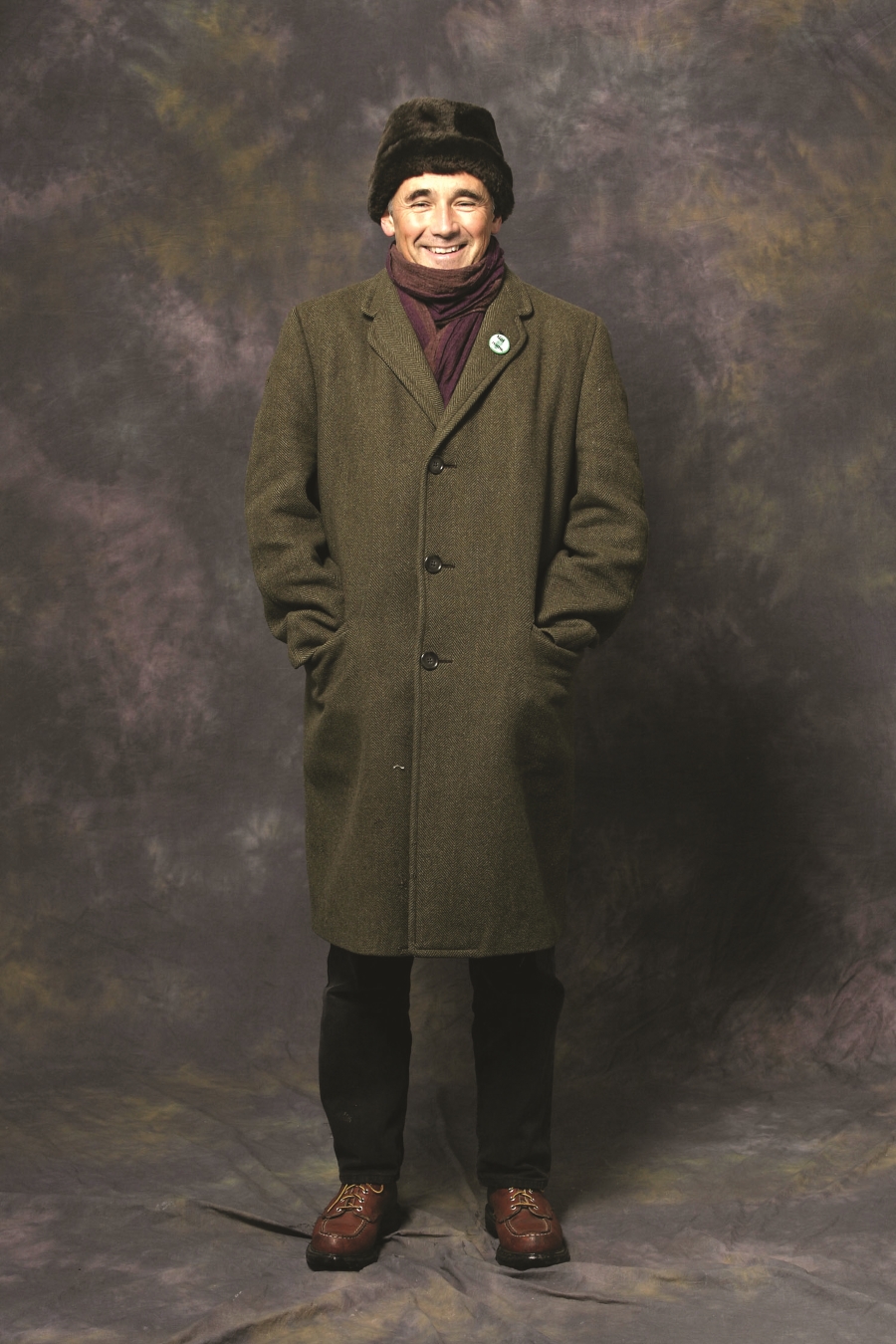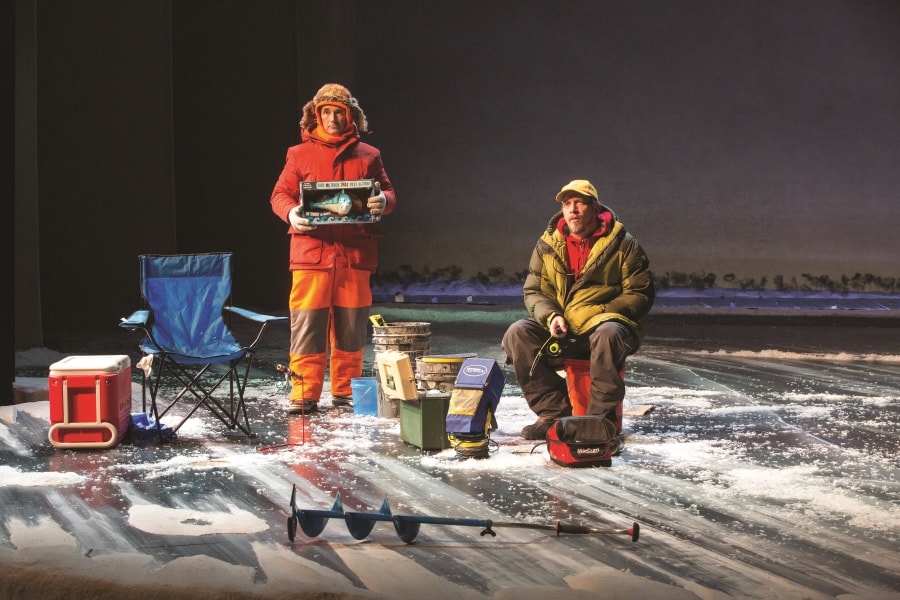Mark Rylance is often considered the most versatile actor of his generation. Among many roles, he has played Olivia in Twelfth Night, Johnny “Rooster” Byron in Jerusalem, and now Ron—a middle-aged Minnesotan on an ice-fishing excursion in Nice Fish.
Premiering at Minneapolis’s Guthrie Theater this month, Nice Fish is a testament to Rylance’s many talents: he stars, directs with his wife Claire van Kampen, and presents a collaborative script with the Minnesotan prose poet Louis Jenkins—whose 1996 collection of poems gives the play its name.

For years Rylance has admired Jenkins’s humorous, quirky and contemplative musings. At the Drama Desk and Tony Awards, Rylance has turned Jenkins’s poems into acceptance speeches (find them on YouTube) and he has often recited Jenkins’s poetry at dinner events with friends.
The actor’s affinity for Midwestern verse may seem surprising. Rylance exudes Britishness, with his soft lilting accent, numerous Shakespearean roles, and decade-long tenure as artistic director of Shakespeare’s Globe in London. But Rylance’s adolescent years were spent in Wisconsin. His decision to write Nice Fish was as much about admiring Jenkins’s words as it was recalling childhood memories, especially those long winters. “I remember that about the Midwest as compared to London,” Rylance says. “One is much more aware of the elements.”
Rylance’s first version of Nice Fish was comprised entirely of Jenkins’s poetry and featured two ice-fishermen on a frozen lake speaking the poet’s words. Jenkins was skeptical of his poems’ potential as theatre, until a well-received 2011 workshop in New York City changed his mind. Since then, Rylance has expanded the play to three acts, inserting additional characters and his own writing. “I wanted to create it in Minnesota so that people coming to the play would know about ice fishing and that environment,” says Rylance. “There’s something magical about being suspended on eight or nine inches of ice. There’s the sense that it won’t last. The fishermen are searching for something essential—that feeling that one is removed from one’s life.”
Rylance has made a full life and career in England, but he admits that a certain weight is lifted off his shoulders when he returns to the Great Lakes region. Even his Midwest accent starts to emerge again. “Not just the accent,” he says, “but a character in me, too. I get a flash of being 18 again.”


